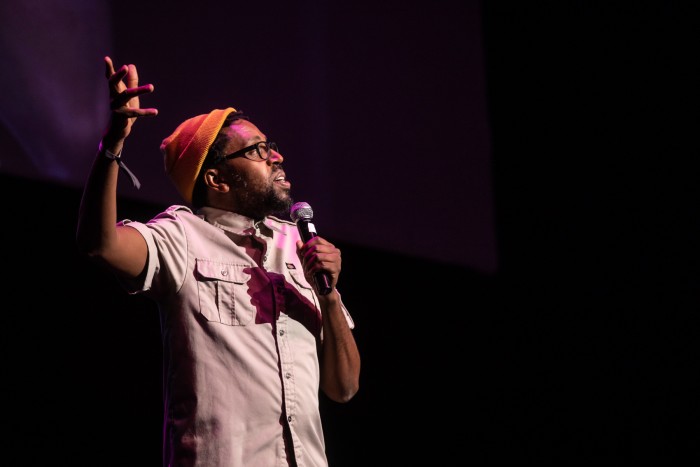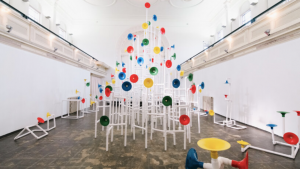Kagiso Lediga is a household name in the home of many South Africans. But this wasn’t always the case. As Lediga explained at the 2019 Design Indaba Conference, when he started his comedic career 20 years ago, the South African comedy industry was basically non-existent.
Interweaving his renowned humour into his talk, comedian, writer and director Lediga explains, “we performed in all these places like Claremont and Kenilworth and the people weren’t even sure what we were doing because they didn’t know what stand-up was really. I’d come up on stages and people would think I was doing protest theatre or some shit…it was weird.”
Of the few people who were part of the industry, most, if not all of them were white males.
He says that when going up on stage he was always introduced or known as “the black guy”. But he says that this role as “the black guy” was really significant. “It was always very important, because you’re telling your story and you’re representing a whole bunch of people,” he recounts.
Having to navigate this narrative of the black comedian, having to tell stories about the black experience that “paints you as a normal person” in front of an audience of mostly white people helped him as a storyteller. Working with other comedians from different cultural backgrounds showed him what the responsibility of a comedian and a storyteller truly was. For Lediga it ultimately boils down to being honest with yourself and who you are, "You need to be honest when you’re telling your story…it has to be a truth from inside.”
Lediga, however, does acknowledge that being a comedian and a storyteller in this country can be difficult and that sometimes people don’t always want to hear about the stories you have to tell.
He mentions that while some of the shows that he’s put on or films he has produced weren’t very successful, he won't be deterred. “It’s because I need to do it, I just have to... I'm addicted to telling stories."
Watch more conference talks here:
Meet the cyborg artists who have merged themselves with technology
Markus Kayser's work enables collaboration between tech and biology








